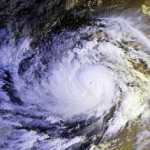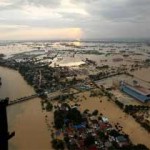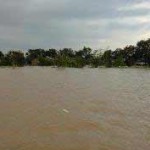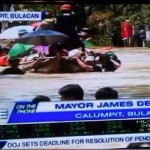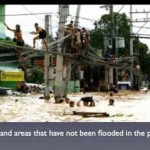- News Front Page
- Uncategorized
- Headline News
- Filipino Calgarian
- Business
- Pinoy Stories
- Community News
- Publisher's Note
- The Main Ingredient
- Views and Opinions
- Maikling Kwento
- Alberta News
- OFW – Month
- Travel News
- Health and Lifestyle
- Pinoy Toons
- Pinoy Spirit
- Entertainment
- The Philippine Lawyer
- Horoscope
- Greetings
- Editorial
- About Us
- Greetings From the Prime Minister
- Greetings from the President of the Philippines
- Greetings from the Premier of Alberta
- Greetings from the Mayor of Calgary
- Advertise With Us
- Disclaimer
- Subscription
Publisher's Note
- Publisher’s Note
 HAPPY NEW YEAR! HAPPY THREE KINGS!
As we are now in 2019, new year, new beginnings, new challenges and new opportunities. Everyone is entitled to make their new year’s resolution for as long as they keep it in mind and make sure that they do it to the best of their ability. When I was young [...]
HAPPY NEW YEAR! HAPPY THREE KINGS!
As we are now in 2019, new year, new beginnings, new challenges and new opportunities. Everyone is entitled to make their new year’s resolution for as long as they keep it in mind and make sure that they do it to the best of their ability. When I was young [...]
Visitors to Pinoytimes
Page added on October 17, 2011
WRATH OF TWIN TYPHOONS PEDRING & QUIEL – THE AFTERMATH
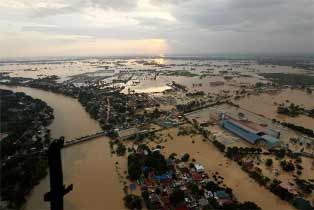
by: Marietta Pangan Dutkoski
TWIN Typhoons Pedring (Nesat) and Quiel ( Nalgae) were the most powerful typhoons that hit the Philippines in one week. Although they are the 17th and 18th named storms that touched the archipelago this year, they synergistically brought devastation and damage, and rivaled Typhoon Ondoy (Ketsana) which made landfall exactly 2 years earlier. On September 27, strong winds and relentless rain hit Manila leaving parts of the metro flooded and in ruins. Typhoons Pedring/Quiel, are now believed to be among the worst typhoons, which brought ruin to the entire Luzon Island.
The first heavily hit area was Manila, along the stretch of Roxas Boulevard. Part of it’s sea wall collapsed from the storm surge which resulted in street flooding. Pedring then hit the northeastern side of Luzon before dawn Tuesday in Camarines Sur, Catanduanes and Albay. It also battererd the city of Valenzuela in Bulacan. All these places were submerged in water and experienced several casualties and significant damage.
Perdring didn’t spare the provinces of Isabela, Luzon, Ilocos Norte, Ilocos Sur, Abra, Kalinga, Mt. Province, Ifugao, Benguet, La Union, Nueva Viscaya, and Pangasinan which were under storm signal No. 3.
While signal No.2 was declared in provinces in Northern Luzon such as Apayao, Cagayan, Isabela, Quirino, and Central Luzon provinces of Nueva Ecija, Zambales, Pampanga, Tarlac, Bulacan, Bataan including Metro Manila. Signal No.1 was declared over Babuyan, the Calayan group of Islands, Northern Quezon, Polillo Island, Rizal, Laguna, Batangas, Lubang Island and Cavite.
Pedring had paralyzed most of the main island of Luzon and wreaked havoc for 635,405 families/2,957,613persons/3,442 villages/308 municipalities, 42 cities/35 provinces of Regions I,II,III,IV-A&B,V, VI, CAR & NCR according to the latest updates from the National Disaster Risk Reduction and Management Council (NDRRMC) in their October 6, 2011 bulletin, issued by NDRRMC executive director, Undersecretary Benito Ramos.
Ramos mentioned during an interview by Agence France-Presse that, “This storm is very intense, the rain is strong and winds are powerful . . . we are hearing of rivers about to burst their banks, and there are evacuations ongoing in different areas”. He also added that, “We do not have exact figures on how big the damage is . . . as the storm is still battering us”.
The typhoon was very wide in diameter, which caused widespread flooding in almost all provinces and regions of Luzon. Power outages contributed to laying the islands in ruins. The two-headed monster typhoons flattened homes, forced families to flee to their roof tops with nearly nothing to eat or drink.
Typhoon Pedring and Quiel joined together which significantly escalated the damage to both life and property. This Pedring/Quiel tandem caused 162 casualties; 71 dead; 66 injured, and 25 missing. They spared neither livelihoods nor properties. The destruction soared to Php 9,436,897,401 in total combined damages to infrastructure, agriculture, housing and fisheries.
Millions of people in the hardest-hit area of Central Luzon were left in turmoil by Pedring and Quiel. NDRRMC said that Pampanga and Bulacan are still threatened by floodwaters which will last for at least another week. This direction of the water flow went from Nueva Ecija to Candaba, San Luis and San Simon (in Pampanga), then to Calumpit and Hagonoy (in Bulacan).
Several teams from the Army, Philippine Coast Guard, Philippine National Red Cross and other nearby Regional, Provincial and Municipal rescue teams were deployed with scarce equipment into several areas of Luzon including the hardest hit towns of Calumpit and Hagonoy. Rescuers used mostly rubber boats and canoes to help those in flooded areas.
Many families refused to leave their homes for the refuge of evacuation centers. They chose to protect what was left of their livelihood and guard their homes from looters and thieves. Many didn’t have a place to go! Other unfortunate families were totally isolated by the flood waters in the village of Frances in Calumpit. Rescue meant risking the lives of the rescuers themselves!
“Lumakas ang pagdating ng tubig, biglang bigla mula kagabi. Umaabot na dalawang metro, halos lahat nasa bubong na (at) tumataas pa lalo,” Heracleo Pangan, 74, a resident of Frances village in Calumpit town in Bulacan. He said they had seen no sign of assistance from authorities since Tuesday, when typhoon Pedring (Nesat) lashed Luzon. Pangan also voiced fears to GMA news that some residents in the area may have drowned. “Walang makarating dito kahit anong uri ng sasakyan. (Kahit sasakyang pantubig hindi uubra (It appears no vehicle can reach our area. Even watercraft will have a hard time getting here),” he said.
In another interview, Heracleo, said that no rescue team had reached their area since typhoon “Pedring” hit Luzon. He said residents living in bungalow-type houses have been staying on rooftops since yesterday because of the floods. “Nandito kami sa taas ng bubong ng bayan. Kaming mga mag-anak, apo at kapit-bahay. We are 200 meters away from the Calumpit Bridge. We have 4 children with us,” he told ABS-CBN’s Umagang Kay Ganda. He added that rescuers cannot use rubber boats to reach their area because of the current.
The Philippines endures an average of 20-25 storms yearly, several of them are deadly, and the Pedring/Queil tandem is definitely one of the worst of the year
Although Pedring left on Thursday, September 27 and Quiel on Saturday, September 29, the country was again battered by the calamity.
All television news networks broadcasted both aerial and land footage of the actual water world, with flood water covering large areas of Bulacan, Nueva Ecija and Pampanga. These provinces are where many of the country’s large rice producing plains are located. Most of the towns and villages of these provinces remained under water, without power or phone network connections.
Amidst the cleanup and restoration operations conducted by the Philippine government, the unsurpassable miseries brought by back to back typhoons Pedring and Quiel will linger on in the memories of the nation for quite a while. Despite all of this, Filipinos are known for their resiliency, hard work and strong faith. They will rise and get back on their feet.
Sunday afternoon of October 2, Quiel totally left the country and headed toward China.
see gallery_shortcode() in wp-includes/media.php** Post script**
Heracleo Pangan (74 y/o) and his family consisting of his wife (74y/o), 2 daughters,
2 teenage grandsons and 2 grand daughters, one being 4 y/o, along with 2 neighbours and their 2 children who were staying with them, were all stranded on their roof for 3days/2nights with out food, water or medications.
They were rescued as of October 2, @ 6pm through the vigilant efforts of their family in Canada, USA, friends & relatives from Manila and Pampanga. The heroic deed was performed by Frogmen from the Philippine Coast Guard, and teams from the Philippine National Police-Baguio and Philippine Red Cross Rescue. Additional attempts of help were made by Cathy Luntayao of ABS-CBN, Arnld Villanueva of Philippine Marines and Nelson/Marilyn Esteban and friends.
RELATED STORIES
LATEST HEADLINES
- Supporting Visible Minority Newcomer Women in Calgary
- Pinoy Times 10th Year Anniversary Celebration
- MOTION RECOGNIZING JUNE AS FILIPINO HERITAGE MONTH PASSES CANADA’S PARLIAMENT
- Manmeet Singh Bhullar Park officially opens in Calgary
- CORONATION OF MS. BARANGAY 2018 OF THE GOLDEN GENERATIONS SENIORS CLUB OF CALGARY
COMMUNITY NEWS
 NOTICE TO MEDIA
NOTICE TO MEDIA Message from the Mayor
Message from the Mayor Message from the Premier of Alberta
Message from the Premier of Alberta Message from the Prime Minister of Canada
Message from the Prime Minister of CanadaPINOY STORIES
 Hacking a Pinoy Christmas abroad
Hacking a Pinoy Christmas abroad- Holy Week practices in the Philippines
PINOY SPIRIT
HAVE YOUR SAY
Lorem ipsum dolor sit amet, consectetur adipiscing elit, dolor sit ipsum.PROMOTIONAL BLOCK
Lorem ipsum dolor sit amet, consectetur adipiscing elit, dolor sit ipsum.TRAVEL NEWS
PINOY TOONS
Tags
Archives





